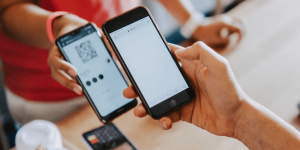
Introduction
Smartphones have become our constant companions, offering a world of information, connection, and entertainment at our fingertips. However, as we increasingly rely on these devices for various aspects of our lives, concerns about their impact on mental health have emerged. In this article, we will explore the intricate relationship between smartphone usage and mental health disorders, shedding light on how excessive screen time, social media pressures, and digital dependency can contribute to anxiety and depression. We will also provide strategies to safeguard your mental well-being in the digital age.
The Rise of Smartphone Dependency
Smartphones have evolved from tools to companions, and for many, they are an integral part of daily life. We’ll discuss how this dependency on smartphones has led to concerns about its impact on mental health.
The Anxiety Epidemic
Heading: The Connection Between Smartphones and Anxiety
Excessive smartphone use can contribute to feelings of anxiety. We’ll explore how constant connectivity, social comparison, and the fear of missing out (FOMO) play a role in this modern anxiety epidemic.
The Social Media Dilemma
Social media platforms can be a double-edged sword. While they offer connectivity, they also introduce pressures related to image, popularity, and validation. We’ll delve into how these pressures can contribute to anxiety and depression.
Smartphone Usage and Sleep Disruption
Smartphones emit blue light, which can interfere with sleep patterns. Poor sleep quality, often linked to smartphone use before bedtime, can contribute to mood disturbances and mental health issues.

Smartphone Addiction and Depression
We’ll explore how smartphone addiction can contribute to feelings of depression. The constant need for digital validation and the displacement of real-world experiences can be detrimental to mental well-being.
Safeguarding Your Mental Well-being
Safeguarding your mental well-being in the digital age is essential. We’ll provide practical strategies, including setting screen time limits, practicing mindfulness, and seeking professional help when needed.
Balancing Connectivity and Well-being
Balancing connectivity and well-being is the key. We’ll discuss how fostering a healthy relationship with technology and being mindful of your smartphone usage can contribute to better mental health.
Conclusion
While smartphones have undoubtedly transformed our lives, their impact on mental health cannot be overlooked. From anxiety to depression, excessive smartphone usage and digital dependency can have serious consequences. Recognizing the signs of smartphone-related mental health issues and implementing strategies to safeguard your well-being is crucial. By fostering a healthy balance between technology and your mental health, you can enjoy the benefits of connectivity while protecting your most valuable asset—your well-being.










